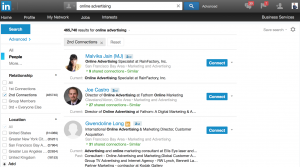There are a ton of misconceptions related to search engine marketing, but just about all of them fall into two categories. This recent Search Engine Land article defines them clearly:
“If you break it down, there are two broad categories of misconceptions about SEO, each of which is damaging in its own way. The first category is misconceptions about what SEO is and what it’s used for. The second category of misconceptions is related to the strategic execution of a campaign.”
So if you’ve heard something about SEM that sounds wrong, the person who said it either doesn’t understand SEO or doesn’t know to how to plan a strategy or campaign related to it.
Misconceptions regarding SEM’s use
The most common SEM misconception is that it’s just a way to spam Google’s search algorithm to give your website a good site ranking. Although black-hat tactics definitely exist, no respectable agency would ever recommend them. Saying SEM is spamming is like saying social media marketing is spying on your followers.
There are many reasons to prove SEO is alive and well, but to save time, I’ll just reference a quote from Google Software Engineer Matt Cutts: “Our advice for webmasters is to focus on creating high quality sites that create a good user experience and employ white-hat SEO methods instead of engaging in aggressive web spam tactics.”
Misconceptions regarding SEM strategies
Misconceptions in this category are often just outdated strategies. Stuffing keywords, for example, used to be widely recommended within the context of SEM. But that changed about five or six years ago, and some businesses still approach SEM with the same mentality. To be able to plan a good SEM strategy, you have to be knowledgeable regarding Google’s algorithm and its corresponding updates.
When you use the Google keyword tool to make your keyword research, it is normal to select keywords that have high traffic thinking that this way you will gain more visits to your website. This is a misconception because high traffic keywords are also high competition keywords that are very difficult to rank. The end result will be zero traffic and disappointment.
What you should do instead is target low competition, long tail keywords which are relatively easier to rank and once you have top positions for a number of low competition keywords, you can go after medium and high competition keywords that will also bring in more traffic.
There are many SEO misconceptions circulating the web mainly because of the confusion caused by the various Google updates. SEO rules change all the time and if you are not following the recent developments you may end up in confusion.
The best way to minimize your risk from Google updates and to stay unaffected from any SEO misconceptions or changes it to create a high quality website with attention to design and user experience. If you can manage to offer a unique experience to your users with good quality content then success is inevitable with or without SEO.
SEM is the most misunderstood aspect of online marketing. While social media and email marketing are somewhat intuitive, SEM is more sophisticated in nature. As a result, there is an endless amount of misconceptions concerning SEO, all of which show a lack of knowledge in regard to its function, use, and effect.
Digital & Social Articles on Business 2 Community(49)






